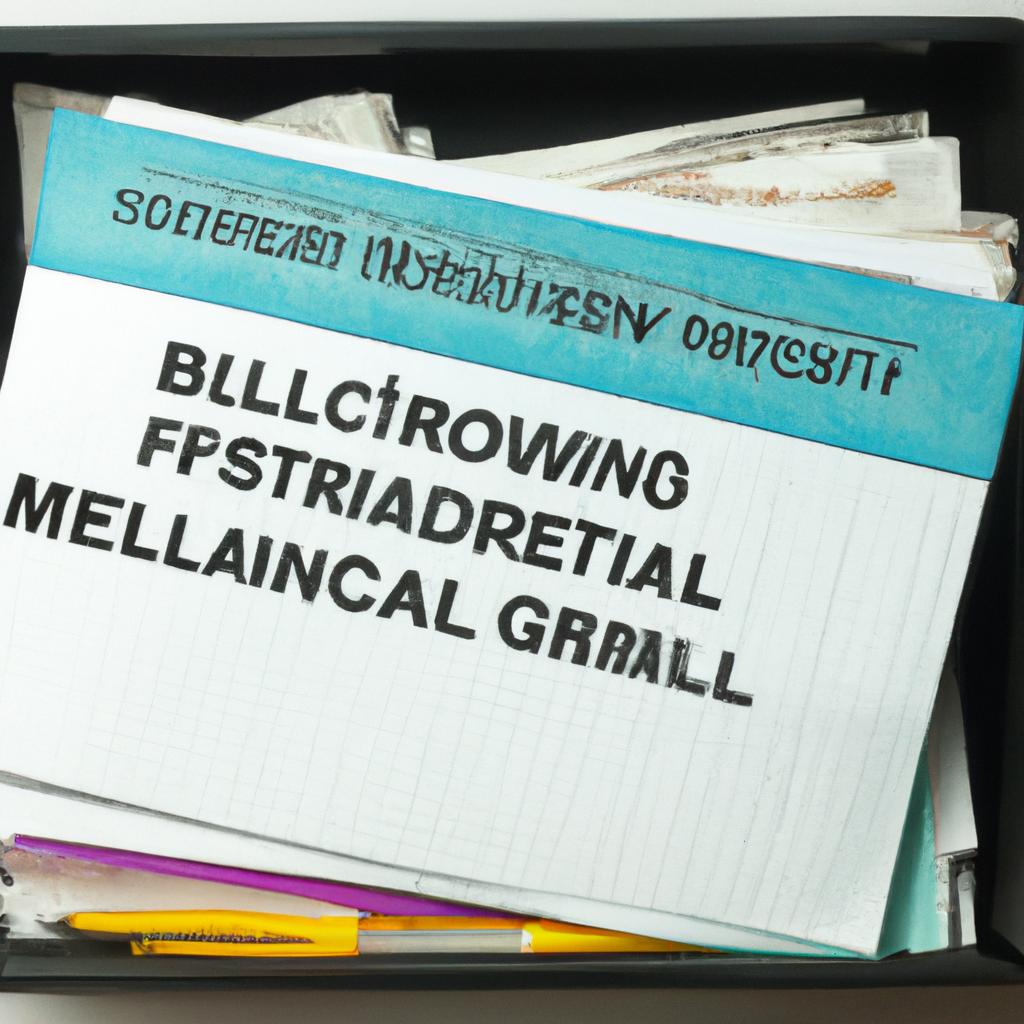In navigating the aftermath of a loved one’s passing, the question of how long to retain medical bills can often add an additional layer of complexity to an already emotionally taxing situation. As experienced attorneys in estate planning, probate, elder law, Wills, and trusts at Morgan Legal Group in New York City, we understand the importance of proper recordkeeping and the implications it can have on the settlement of an individual’s affairs. In this article, we will delve into the intricacies of maintaining medical bills after death, providing clarity on the recommended timelines and legal considerations for this crucial aspect of posthumous financial management.
Retaining Medical Bills After the Passing of a Loved One
When dealing with the passing of a loved one, it is essential to understand the importance of retaining medical bills for a certain period of time. Medical bills should be kept for a minimum of 7 years for tax and insurance purposes. This is crucial for ensuring that all medical expenses are properly accounted for and can be used for any potential claims or audits.
Moreover, keeping medical bills can also be beneficial for estate planning and probate purposes. It can help in accurately settling any outstanding medical debts of the deceased and ensuring that the estate is distributed correctly. By organizing and retaining medical bills, you can provide documentation and evidence of any medical expenses incurred, which can be vital in legal proceedings and protecting the interests of the estate beneficiaries. Remember to keep these records in a safe and secure location to prevent any loss or damage.
Understanding the Importance of Keeping Medical Bills for Estate Administration
When it comes to estate administration, one crucial aspect that is often overlooked is the importance of keeping medical bills. Medical bills play a significant role in settling the estate of a deceased individual, as they provide documentation of the medical expenses incurred before death. These bills are essential for accurately determining the final expenses of the deceased and ensuring that the estate is handled properly.
It is recommended to keep medical bills for a certain period after the death of a loved one to ensure all expenses are accounted for. Typically, it is advised to keep medical bills for at least 7 years after the individual’s passing. This timeline allows for enough time to resolve any outstanding medical expenses and address any potential issues that may arise during the estate administration process. By keeping medical bills organized and readily available, you can streamline the estate settlement process and avoid any potential complications that may arise.

Practical Recommendations for Organizing and Storing Medical Bills Post-Death
Organizing Medical Bills:
- Start by gathering all medical bills from various healthcare providers.
- Organize the bills in chronological order, starting with the most recent bills.
- Consider creating an electronic folder or binder to keep all bills in one place.
- Label each bill with the date of service, healthcare provider, and amount owed.
Storing Medical Bills:
- Store physical copies of medical bills in a safe and secure location, such as a locked filing cabinet or safe deposit box.
- Consider digitizing medical bills and storing them in a secure cloud storage service.
- Inform your trusted family members or executor of the location of the medical bills for easy access post-death.
- Review your state’s laws on how long to keep medical bills after death to ensure compliance.

Consulting Legal Professionals for Guidance on Managing Medical Expenses in Estates
When it comes to managing medical expenses in estates, consulting legal professionals can provide invaluable guidance. One common question that arises is how long to keep medical bills after the death of a loved one. It is important to keep in mind that medical bills may be necessary for tax purposes, insurance claims, or potential disputes. Therefore, it is recommended to keep medical bills for a certain period of time to ensure proper documentation and record-keeping.
Typically, it is advisable to keep medical bills for at least seven years after the death of the individual. This timeframe allows for the resolution of any outstanding issues that may arise related to medical expenses. Additionally, organizing and storing medical bills in a secure and accessible manner is essential to avoid any complications in the future. Consulting with legal professionals can provide further clarity on the specific requirements and best practices for managing medical expenses in estates.
Q&A
Q: How long should you keep medical bills after a loved one has passed away?
A: It is recommended to keep medical bills for at least three to seven years after the death of a loved one.
Q: Why should you keep medical bills after death?
A: Keeping medical bills can be helpful for resolving any outstanding debts or claims related to the deceased’s medical expenses.
Q: How can medical bills be useful after a death?
A: Medical bills can be used for tax purposes, insurance claims, and estate settlements after a loved one has passed away.
Q: What should you do with medical bills after you no longer need them?
A: Once you no longer need to keep medical bills, it is important to securely shred or dispose of them to protect sensitive information.
Final Thoughts
In conclusion, it is important to keep medical bills after the death of a loved one for a certain period of time in order to properly settle any outstanding debts or claims. While there is no definitive answer to how long to keep these documents, it is wise to consult with legal and financial experts to determine the appropriate timeframe. By being organized and proactive in managing medical bills, you can ensure a smooth transition during a difficult time. Remember, each situation is unique, so it is best to approach this task with care and attention to detail.

